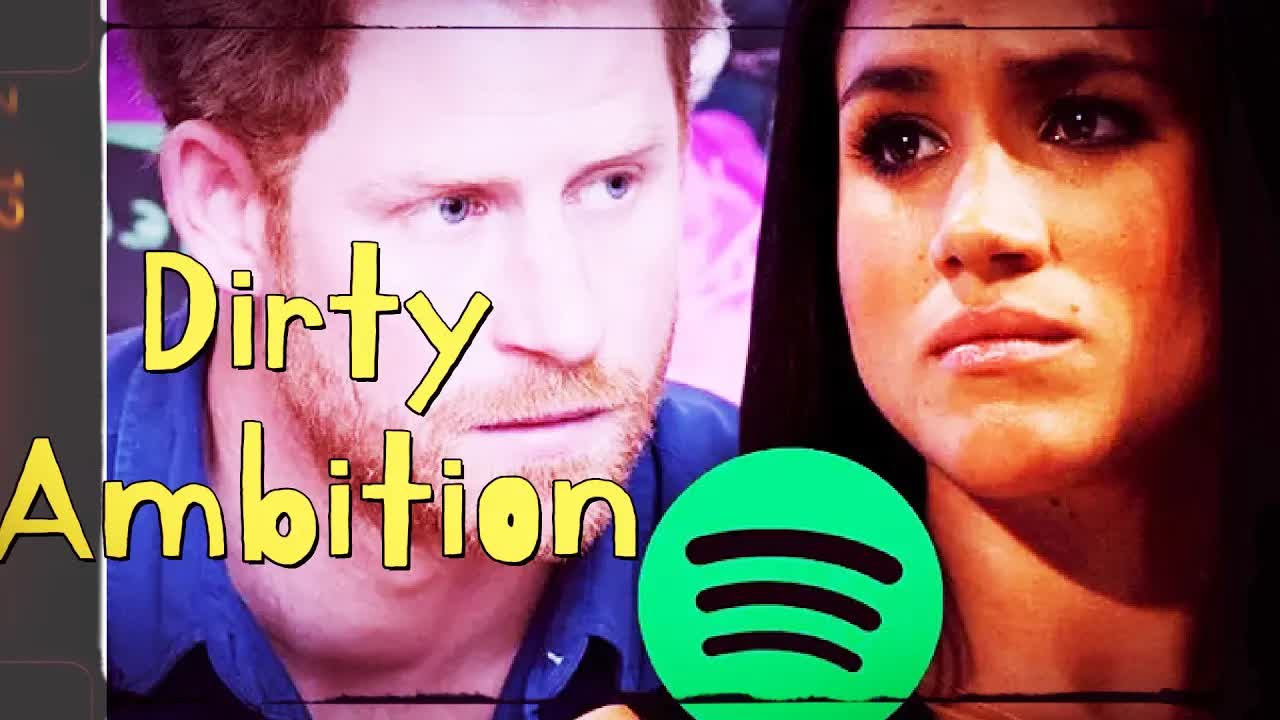In a recent episode of her podcast, “Archetypes,” Meghan Markle opened up about her experiences with ambition, particularly as it relates to her marriage with Prince Harry.
Speaking candidly with tennis superstar Serena Williams, Meghan revealed that she had never perceived the word “ambitious” negatively until her relationship with Harry thrust her into the public eye.
It was then that she began to feel the weight of criticism surrounding the term, which many associate with negative connotations for women.
Meghan expressed her frustration, noting that ambition, especially for women, is often viewed through a harsh lens.
She shared that while she had always embraced the idea of being ambitious, it became tainted when she entered the royal family.
The backlash she faced online after her comments has been significant, but royal expert Omid Scobie came to her defense, highlighting how the media often uses the term “ambitious” in a derogatory manner, particularly in relation to women.
Critics, however, have not held back.
Journalist Ella Whelan weighed in, arguing that ambition should only be celebrated if it leads to worthwhile achievements.
She contended that Meghan’s ambition, which some see as a pursuit of celebrity status, could justifiably be labeled in a less flattering light.
This raises an important question: does the context of one’s ambition define its value?
The conversation about ambition and its implications took an interesting turn when Meghan’s husband, Prince Harry, made a brief appearance on her podcast.
His cameo, where he complimented Serena’s hairstyle, seemed spontaneous but was likely part of a carefully crafted strategy to keep their connection to the royal family alive in the public’s mind.
Jonathan Sacrodoti, a royal commentator, suggested that Harry’s appearances serve to remind audiences of Meghan’s royal ties, which are crucial for maintaining her relevance.
As Meghan continues to navigate her new life in America, it’s clear that her connection to the British monarchy remains a focal point.
Sacrodoti noted that Meghan’s identity is largely tied to her marriage with Harry, and without these reminders, the public may lose interest.
This dynamic illustrates the delicate balance Meghan must maintain between her personal ambitions and her royal heritage.
Adding to the drama, Meghan recently recounted a harrowing incident involving a fire in her son Archie‘s room during a royal tour of South Africa.
This moment, she suggested, played a pivotal role in her decision to step back from royal duties.
Critics have pointed out the timing and context of this revelation, questioning whether it was an attempt to garner sympathy or highlight the pressures of royal life.
Yet, amidst the scrutiny, Meghan’s friend Nacho Figueras offered a glowing endorsement of the couple, praising Harry as a devoted father and husband.
While such endorsements might seem genuine, they can also come off as orchestrated attempts to counterbalance negative press.
The pressure to maintain a positive public image can lead to what some perceive as insincerity.
This ongoing narrative begs the question: how much of Meghan’s story is constructed for public consumption?
As she shares her experiences, the line between genuine reflection and calculated media strategy becomes increasingly blurred.
The stakes are high, and with millions of eyes watching, every word counts.
Furthermore, the implications of Meghan’s storytelling extend beyond her personal journey.
By framing her experiences within the context of ambition and sacrifice, she risks overshadowing the real struggles faced by many.
The narrative she crafts could potentially distort perceptions of both royal life and the challenges of motherhood.
As Meghan and Harry continue to carve out their niche in America, the interplay between their past and present remains a potent theme.
Their journey is a modern-day saga, filled with ambition, controversy, and the quest for identity.
In a world captivated by their every move, it’s crucial to discern the difference between reality and the narratives they choose to project.
The complexities surrounding Meghan’s ambition and her royal ties illustrate a broader conversation about women in power and the societal expectations placed upon them.
As Meghan navigates this path, her story serves as both a cautionary tale and an inspiration—a reminder that ambition, while powerful, can also be a double-edged sword.
With each podcast episode, Meghan invites listeners into her world, yet the question remains: will her ambition ultimately empower her or ensnare her in the very narratives she seeks to challenge?
Only time will tell as this real-life drama unfolds.










